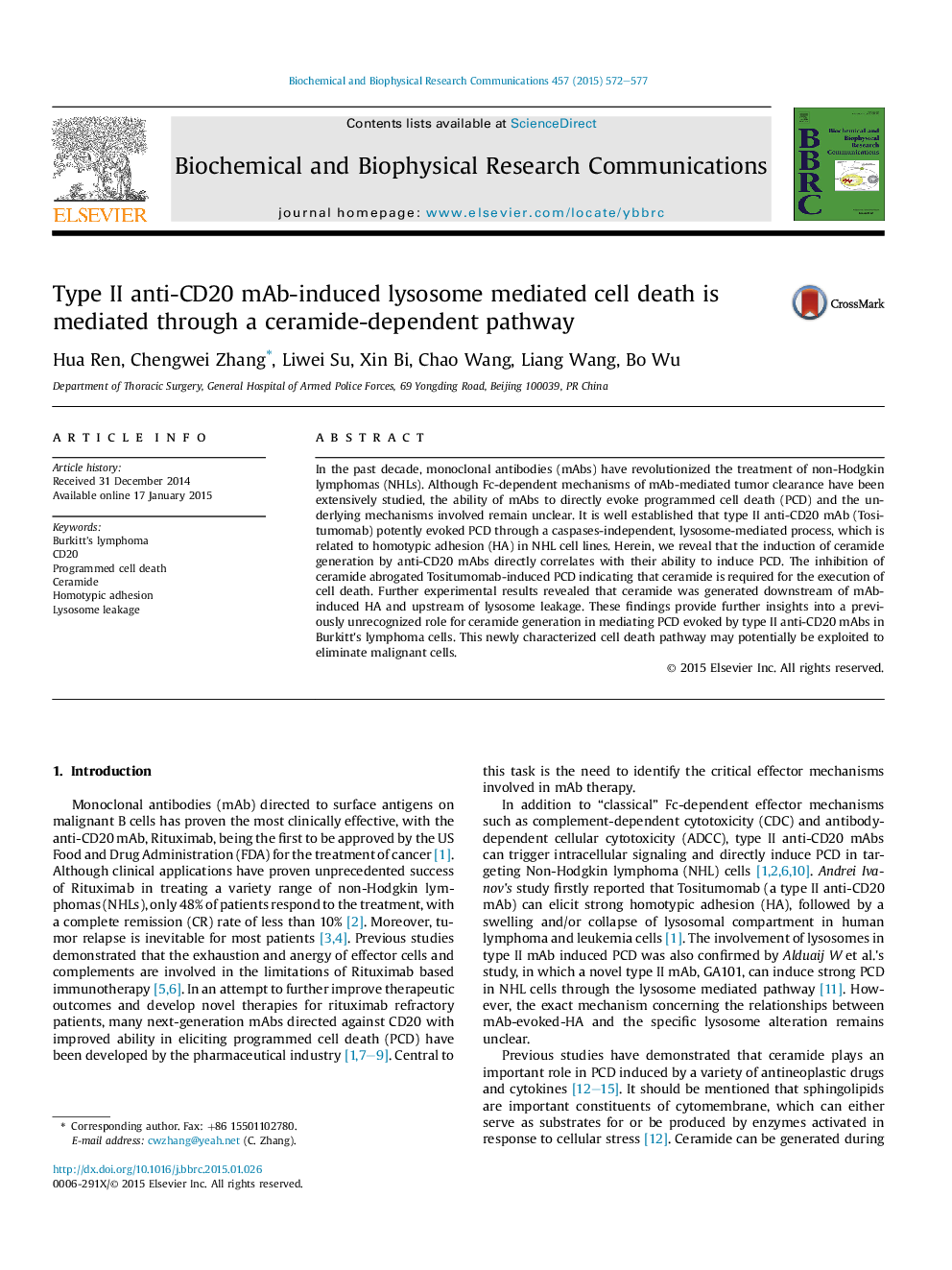| Article ID | Journal | Published Year | Pages | File Type |
|---|---|---|---|---|
| 10752526 | Biochemical and Biophysical Research Communications | 2015 | 6 Pages |
Abstract
In the past decade, monoclonal antibodies (mAbs) have revolutionized the treatment of non-Hodgkin lymphomas (NHLs). Although Fc-dependent mechanisms of mAb-mediated tumor clearance have been extensively studied, the ability of mAbs to directly evoke programmed cell death (PCD) and the underlying mechanisms involved remain unclear. It is well established that type II anti-CD20 mAb (Tositumomab) potently evoked PCD through a caspases-independent, lysosome-mediated process, which is related to homotypic adhesion (HA) in NHL cell lines. Herein, we reveal that the induction of ceramide generation by anti-CD20 mAbs directly correlates with their ability to induce PCD. The inhibition of ceramide abrogated Tositumomab-induced PCD indicating that ceramide is required for the execution of cell death. Further experimental results revealed that ceramide was generated downstream of mAb-induced HA and upstream of lysosome leakage. These findings provide further insights into a previously unrecognized role for ceramide generation in mediating PCD evoked by type II anti-CD20 mAbs in Burkitt's lymphoma cells. This newly characterized cell death pathway may potentially be exploited to eliminate malignant cells.
Related Topics
Life Sciences
Biochemistry, Genetics and Molecular Biology
Biochemistry
Authors
Hua Ren, Chengwei Zhang, Liwei Su, Xin Bi, Chao Wang, Liang Wang, Bo Wu,
